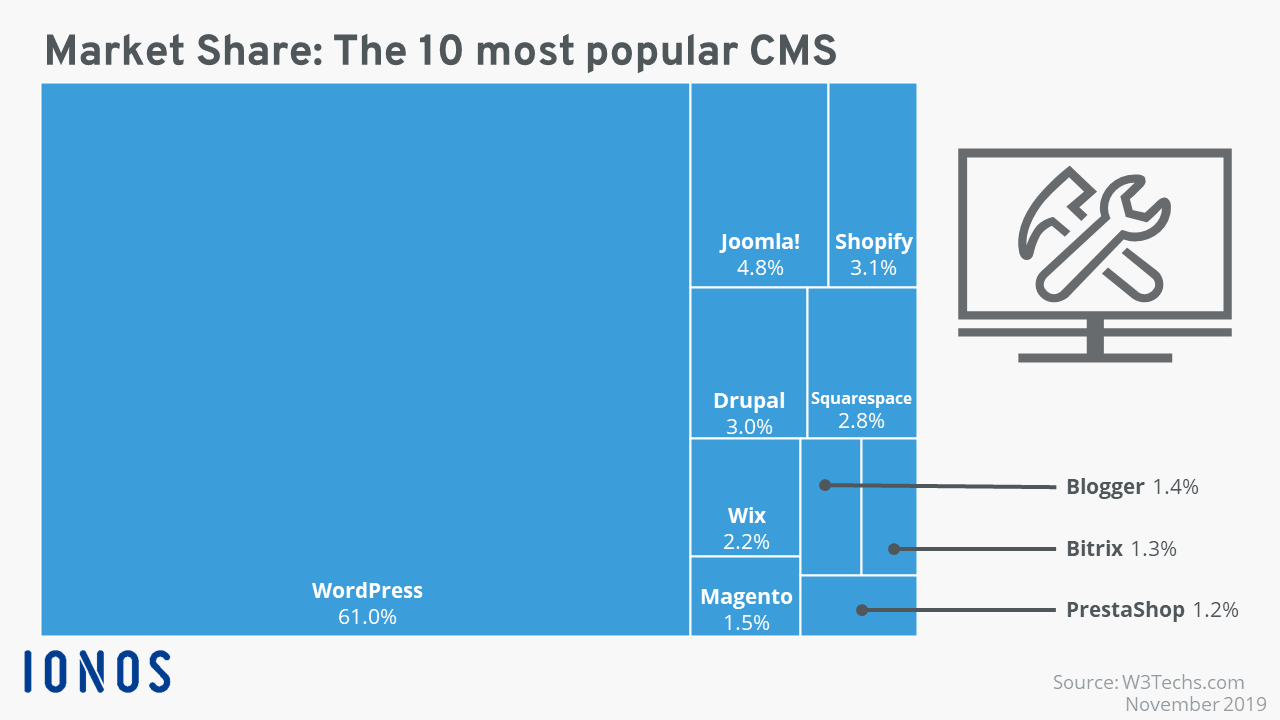CMS stands for Content Management System, which is software that helps users create, manage, and modify content on a website without the need for coding or technical knowledge. Basically, it allows you to be able to create a website without needing to write all the code from scratch.
Some of the most popular CMS systems are WordPress, Joomla, Shopify, Drupal, Squarespace, Wix, Magneto, Blogger, Bitrix, and Prestashop.

WordPress is the leading content management system by a large margin. Source of data can be found at: https://w3techs.com/technologies/overview/content_management/all
Different CMS’s offer different advantages. For example, the WordPress CMS is best for expandability and user-friendliness, while Drupal is best for enterprise-level, high-traffic websites. The goal of any web CMS is to present content to a website audience. CMS’s have both a front-end (user-facing) and administrative area where with the proper permissions the user can manage content, adjust the website appearance, and expand functionality. CMS’s also allow different users to have their own login and different permission levels in order to control access and content.